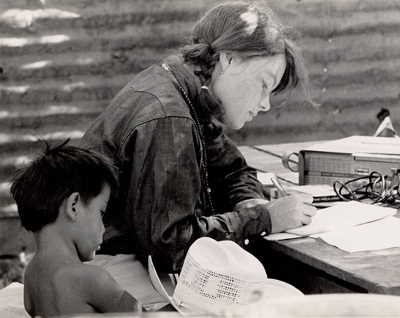After decades devoted to breathing life into dying California languages, linguist Leanne Hinton views her profession's value as far more than academic
"To a linguist this was a real learning experience, because when linguists say, 'Oh, we've got to save these languages,' they often mean 'let's document them,'" observes Hinton. And while she agrees that documentation is "exceedingly important," it's not enough to save a language. "A lot of people were saying that 'documenting the language is pickling the language—we don't want documentation, we want new speakers, and that's what we want to focus on.'"
"I think what constitutes success is people using the language," she explains. "And what I see is that people are. Any word they know, they're figuring out places where they can use it every day—tribal councils saying, 'Okay, you have to vote yes or no in our language, even if those are the only two words we know.' People are developing their own archives and libraries with copies of all the materials on the language. People are developing curriculum materials, dictionaries, phrase books. And so what's happening is that the languages are coming into use again."







No comments:
Post a Comment